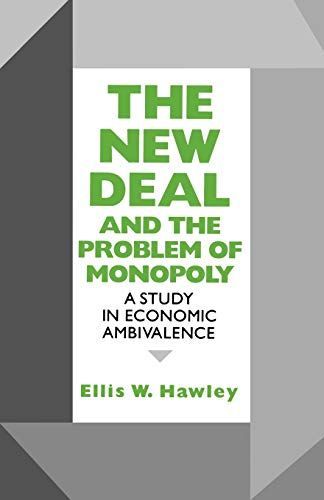
The New Deal and the Problem of Monopoly
The massive depression of the 1930's detonated the crisis between harsh reality and the vision of material abundance and economic security created by the American industrial order. Amid widespread poverty there was increasing concentration of economic power and loss of individual initiative. Professor Hawley traces the pattern of this conflict. He analyzes the National Recovery Administration, the sources and nature of the antitrust ideology, the rise of Keynesianism, the confusion within the Roosevelt Administration during the recession of 1937-38, and the government career of Thurman Arnold. Attention is given to the administrators of the New Deal and to the beliefs, pressures, and symbols that affected their policy decisions. How and why these ideas and pressures produced policies that were economically inconsistent yet politically workable is also explained. Originally published in 1966. The Princeton Legacy Library uses the latest print-on-demand technology to again make available previously out-of-print books from the distinguished backlist of Princeton University Press. These editions preserve the original texts of these important books while presenting them in durable paperback and hardcover editions. The goal of the Princeton Legacy Library is to vastly increase access to the rich scholarly heritage found in the thousands of books published by Princeton University Press since its founding in 1905.